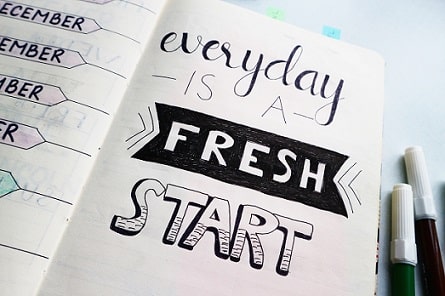How To Work With A Bipolar Coworker – 10 Tips
Nowadays there has been raised awareness about mental illness. However, there is still a lot of miseducation on the subject of bipolar disorder. Being informed about this mental illness can help you learn how to work with a bipolar coworker and deal with issues that you might face at work.
People with bipolar disorder experience extreme mood shifts combined with erratic behavior which can create challenges in the workplace.
Employees working with a bipolar coworker might have to deal with the following issues:
- Disrespected boundaries
- Mood swings
- Lack of motivation
- Erratic behavior
Getting informed about bipolar disorder can help you find ways to make your work life more bearable and less overwhelming. By learning about this mental health issue, you will also be in a position to help your coworker who is struggling with bipolar disorder.
This article focus on how to work with a bipolar person if you are a manager or part of the HR team you might want to know how to deal with a bipolar employee.
Here are 10 tips to help you out when it comes to learning how to work with a bipolar person.
1. Get informed about bipolar disorder
If you are working with a bipolar coworker, you might notice extreme changes in their mood and behavior that greatly deviate from the norm. Informing yourself about this condition can help you understand better how to work with someone with bipolar disorder.
By getting informed, you learn about your coworkers’ behavior and why they behave erratically.
Here are some symptoms which bipolar people experience:
- Hypomania/mania– When a bipolar person experiences mania, they feel euphoric for no apparent reason.
- Sleep disturbances– Episodes of mania or depression can disrupt their sleep.
- Depression– Extreme sadness and hopelessness which leaves them demotivated.
- Anxiety
- Hyperactivity
- Extreme mood swings
2. Respect their privacy

Sharing their diagnosis with others is disrespectful. The fact that your bipolar coworker shared their condition with you doesn’t mean that it’s okay to share it with others. Your coworker may not want to be stigmatized or treated differently.
If your role requires you to be informed of their bipolar condition, make sure that you respect the confidentiality of your role. Even if you are not bound by confidentiality, these kinds of topics are very sensitive.
So you should still be careful what kind of information you disclose when discussing your coworker’s condition.
- If you are working with someone with bipolar disorder and you start gossiping about their condition with other coworkers, it can damage your professional relationship and trust with that person.
- Should your job involve sharing information with your supervisors or managers about your bipolar coworker, be careful what kind of discourse you use and use constructive communication.
- In case your bipolar coworker is negatively impacting your performance or mental wellbeing at work, you can raise your concern to your respective manager.
- Together with your manager you can discuss better ways on how to work better with a bipolar person and improve your performance.
Bipolar disorder is a very complex mental illness. Unless you are sure that someone is bipolar with a medical diagnosis, do not assume yourself or spread rumors that you are working with someone with bipolar disorder. Accusing someone that they are mentally ill is highly unethical and can ruin your reputation.
3. Be supportive and encouraging

If you notice behavioral changes in your colleague, it might be that they are going through a depressive episode. This can leave your bipolar coworker feeling helpless and extremely negative.
A good way to counteract and uplift their mood is by encouraging them to stay positive and offer your support.
Active listening will help your coworker to feel supported and not isolated. Remind them how great they have been performing and how well they fulfill their tasks.
A little praise can do wonders in improving your bipolar co-worker’s mood.
- Of course, make sure that you are genuine with your praise.
- It’s not a good idea to praise them for behaviors you don’t feel positive about. It could actually worsen things as they might sense that you’re not being sincere.
- Being supportive and sincere is a good way to improve your work experience with a bipolar coworker.
4. Offer practical solutions
Making small adaptations and offering practical solutions will improve your experience at work, and theirs, when working with a bipolar coworker. This will support their ability to perform better.
For example, if your bipolar coworker tells you that they are finding it difficult to concentrate in your workspace, you can suggest to them that they ask for a private space to work from.
Working away from distractions in a quiet space helps bipolar people concentrate better on their tasks.
5. Reflect on your boundaries
When working with someone with bipolar disorder, it’s important to reflect on what you can tolerate to establish boundaries. While you want to be supportive and compassionate, your coworker’s behavior might cause you distress. Take some time to reflect on their positive qualities and the type of behavior that causes you anxiety or stress at work.
For example: if your coworker calls you late at night to discuss something regarding work, calmly let them know that it’s inappropriate. You don’t have to feel guilty about it. It’s completely understandable that you would want to establish some boundaries. And this brings us to the next point.
Does your company provide equal employment opportunities to all employees and applicants? Start publishing your vacant jobs for people with disabilities on our platform. Start contributing now to a fairer workplace.
6. Communicate your boundaries

Learning how to communicate your boundaries can seem intimidating when working with a bipolar coworker. But it’s best to calmly express yourself rather than building up stress and accumulating unpleasant feelings.
You might end up bursting out in anger if you don’t share your boundaries which could trigger your bipolar coworker.
Figuring out how to work with a bipolar coworker and establish boundaries will make your life easier, so it’s definitely worth the effort.
When it comes to communicating your boundaries, there’s no need to talk to your bipolar coworker in front of everyone. Try to keep it as civil and as respectful as possible, so simply speak with the person privately and assert your boundaries.
7. Keep it cool and stay calm if an argument arises
You might come across a situation where your bipolar coworker says something offensive or inappropriate. If you start responding back and get into an argument, it might get out of control. So it’s best to remain calm and re-assert your boundaries.
If your coworker engages in offensive behavior, report it to the appropriate department within your company. Managing your emotions when it comes to working with a bipolar coworker is crucial to avoid dramatic episodes.
Follow these steps when you start feeling angry:
- Take a few mindful breaths
- Pause before you answer your bipolar coworker
- Reflect on the words you choose
- Re-assert your boundaries
- Stay in control
- Leave the environment if you feel threatened
8. Practice active listening without judgment
One of the most effective behaviors when learning how to work with a bipolar coworker is active listening.
Be present during your conversations as it shows that you are genuinely interested when your bipolar coworker shares distressing episodes with you.
Most importantly is that you listen without judging. It can be difficult to understand what your bipolar coworker is going through. The best is to let the person tell their story, and be supportive. When you listen with empathy, you create a positive interaction with your bipolar coworker.
Stay positive and remind them of their value. That way they can feel supported when going through difficult times.
9. Don’t take it personally
When you’re working with someone with bipolar disorder, you might feel offended from time to time. You might feel like you want to minimize contact with your neurotic coworker.
To avoid feeling frustrated and impulsive, remind yourself that someone with bipolar has a mental illness that is not easy to live in the first place.
A mental disorder is not visible, however, this doesn’t mean it’s non-existent. This will help you not to take things personally if your bipolar coworker says something inappropriate.
10. Practice self-care

If you are working with a bipolar coworker, you might feel drained out, stressed or unmotivated at work.
To maintain a positive attitude at work, and manage your emotions, it’s important to take good care of your own mental health.
Take time to nourish yourself and practice self-care. The following tips can help you feel better and enhance your emotional wellbeing:
- Mindful meditation
- Yoga
- Physical exercise
- Walk in nature
- Positive social relationships
- Eating healthy meals
- Good sleep routine
How to work with a bipolar coworker in a nutshell
By supporting a coworker with bipolar disorder, you will be improving your work experience and theirs! Well done to you if you’re already doing it. If you are seeking more ways on how to improve your working relationship with your bipolar coworker, the tips mentioned in this post will definitely help you out.
In a nutshell, being empathic, staying positive and taking good care of yourself can not only help yourself but improve your bipolar coworker’s experience in the workplace.
Don’t underestimate your support and compassion. A positive and optimistic attitude can be contagious. Setting an intention to practice a good deed on a daily basis at work can mean a lot to someone struggling with mental health issues.
To better understand your bipolar coworker, have a look at the best jobs for Bipolar people and the worst jobs for bipolar disorder.
FAQ
Working with a bipolar coworker comes with its challenges. Following these 10 tips can improve both your working experience and theirs:
- Get educated
- Respect privacy
- Be supportive
- Offer solutions
- Reflect on self-boundaries
- Communicate boundaries
- Stay calm
- Active listening
- Don’t take it personally
- Self-care
Related articles:
Bipolar Disorder Employment Statistics
Diversity Recruiting Strategies and How to Recruit Diverse Candidates
Disability in the Workplace: Developing Accessibility in 10 Ways
Diversity Management: What is it and Concept
Diversity and Inclusion Topics for Discussion: 9 Talking Points
Managing Diversity in the Workplace: 10 Strategies
Inclusive Behaviors in The Workplace | 15 Ways to Promote it
Fostering Inclusion : Work Environment | 12 Ways to do it
Inclusive Workplaces Practices


leave your comment